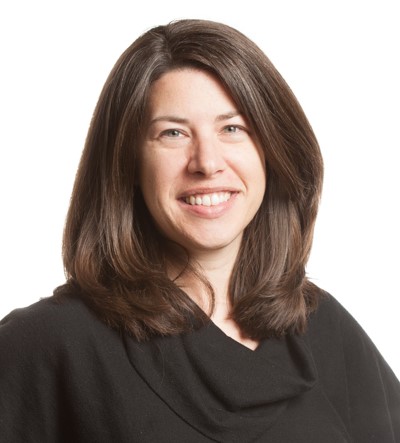‘People will begin to know who we are in new ways’: Bethesda Project CEO Tina Pagotto
 June 20, 2016
Category: Featured, Long, People
June 20, 2016
Category: Featured, Long, People
Disclosures
Editor's note: This story has been corrected to reflect that Tina Pagotto's first position at Bethesda Project was development assistant, not director of housing, and that the nonprofit does have a modest marketing plan in place. Edit 6/20 @ 1:27 p.m.Tina Pagotto has been working with local nonprofit Bethesda Project for nearly 11 of the nonprofit’s 37 years of existence. In that time, the social worker has worked across a variety of roles: fundraising, program development, administration, operations.
Now, after running the gamut, Pagotto is adding CEO to that list. She’s the first woman to serve as head honcho at the housing nonprofit since it was formed in 1979.
“I didn’t have a vision of becoming CEO,” said Pagotto, who began her career with Bethesda as development assistant back in 2005. “I just knew I wanted to learn more. I wanted to make an impact in different ways.”
And now that she’s calling the shots, Pagotto has a chance to do just that. The newly anointed chief executive wants to build a younger donor base, increase the nonprofit’s capacity and amplify its role in fighting homelessness in Philadelphia. All of that will require raising Bethesda’s public profile, and that will be no easy feat: Formed by a group of Christian volunteers, the nonprofit has remained true to its modest and humble roots, often working behind the scenes to provide shelter and housing across the city.
That means the nonprofit has no large-scale marketing plan and no avenue for making its targeted efforts at reducing homelessness known to the public. Pagotto understands and appreciates those roots, and has for the past decade. But she knows it’s time for a change.
“I think the beauty of having been here for 10 years is I appreciate the tradition and our roots. I understand those things. I can honor what’s unique and special about Bethesda Project, but I also recognize the need to grow in other ways,” she said. “I do think it’s a community effort to end homelessness. If [people] know what we’re doing, they’ll want to support us and join us in the work we’re doing.”
Pagotto wants to highlight what Bethesda does best and what she believes is central to the nonprofit’s identity: Providing homeless individuals with a mix of grassroots and professional services.
“We were founded by volunteers, so there’s this very organic nature to how we’ve grown over time. Volunteers are still integral to how we carry out our mission,” she said. Staff is important, but it’s the nonprofit’s volunteers who take services to the next level. “It means something more when you see someone who’s not getting any financial benefit coming in to be with you and help change your life and care about you. There is a lot of healing that goes on, and it’s not just our residents who are enriched by that relationship.”
But how do you measure that kind of relationship? That’s something Pagotto and her Chief Development Officer Kathy Meck are exploring.
“So much of the funding that’s out there is linked to quantifiable measurables and quantitative data, but so much of what we do is qualitative,” said Pagotto.
If Bethesda’s programming has increased a resident’s hygiene, access to public benefits and stability with their medicinal regiment, how can you turn those impacts into data that funders will get excited to see? Pagotto said it comes down to combining the narrative of progress and the case management data that shows the same.
“Being housed for six months is a big deal, but it’s not a flashy statistic,” said Pagotto. “We have to be creative and think outside the box in terms of our data. It’s trying to change the way we think about data, the way our funders think about data and finding a happy medium.”
It’s also about working with other nonprofits fighting homelessness in the city. Bethesda already knows a thing or two about that — their model is dependent on partnerships with housing facilities.
“We are partners. We have a common mission and we’re all doing it a little differently,” she said. “It’s about finding your niche, honing in on it and fine-tuning it. We can work collaboratively and share resources because we’re not trying to be like one another.”
The changes at Bethesda are already making themselves evident. The nonprofit is working on building its Young Professional Advisory Board, a 25-member strong group of volunteers “invested in becoming a new voice” for Bethesda. Each provides a talent or service to fulfill a $1,000 “give/get” responsibility to help boost the nonprofit’s programming and image. One of those board members, for instance, is a graphic designer.
“People will begin to know who we are in new ways,” said Pagotto.
Trending News









